Wheeler Sentenced
Man Who Tried to Kill Wife of 50 Years, for Love, Gets Community Service
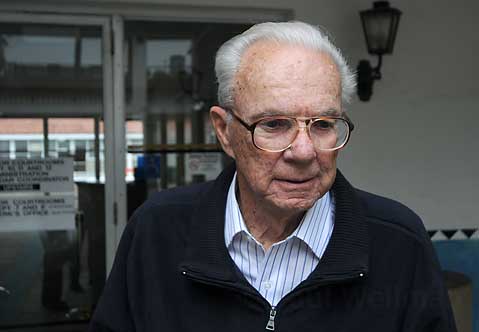
The sighs of relief were resounding and plentiful Thursday when 85-year-old James Wheeler was sentenced in Superior Court for attempting to kill his ailing wife last September, an act meant to bring about his own end as well before it was interrupted by Sheriff’s deputies.
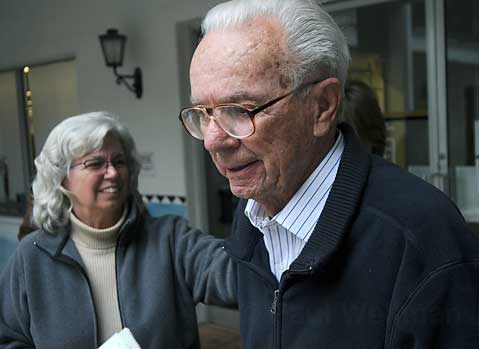
Seated beside his attorney, Steve Balash, in Judge George Eskin‘s courtroom, Wheeler received a sentence of time served plus three years probation and 100 hours of community service. Balash said all the usual requirements of probation will apply; that is, he must remain in contact with probation officials, commit no further crimes, and carry out his hours of community service, most likely with a nonprofit Alzheimer’s association, which is the disease that ravaged his wife, Beckie Wheeler.
But it was the sentiment elicited by Wheeler’s circumstances and actions that made the hearing noteworthy. Even Eskin, after rendering the sentence, admitted he needed a few moments to “compose myself.”
Wheeler was arrested September 17 after a neighbor noticed a hose running from the tailpipe of his idling Oldsmobile into the front window of his Carpinteria home, and called law enforcement. When deputies arrived, Wheeler told them he and his wife were in the process of committing suicide. He also told deputies that his wife had been asking to “see Jesus,” which he took to mean she was ready to go, and that he just wanted to go with her. He was later charged with attempted murder and elder abuse, and could have received a life sentence.
Beckie Wheeler passed away in November from Alzheimer’s complications. She had been living in a small nursing home ever since the incident. She was diagnosed with the disease five years earlier but only stopped recognizing family members, including her husband, in the weeks before the incident. Lifelong friends in Carpinteria said the two enjoyed an unusually close and happy marriage, beginning in 1944, days before Wheeler left for World War II Air Force duty.
“They were a couple that was so much in love,” said Angelo Granaroli, a longtime friend who, along with his wife, Marie, played a weekly game of volleyball with the couple for 50 years. “It should be a lesson for people to look into their own history and be a loving couple like them. The world would be great.”
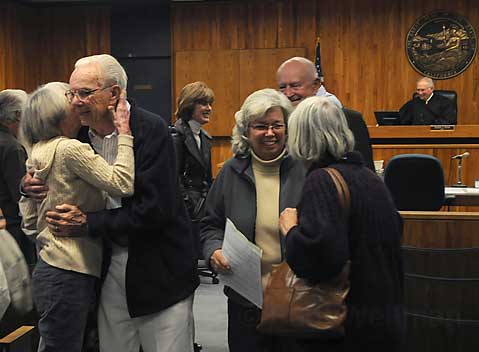
About 15 friends and family attended Thursday’s hearing to support Wheeler. Almost all of them, plus many others, wrote letters to the probation office attesting to Wheeler’s character and, while acknowledging what he did was wrong, assured officials that it was done out of love and desperation. Thirty-four letters were received in all.
“It was totally out of love,” said Karen Wheeler, James Wheeler’s daughter-in-law, who once described the Wheelers as “the ideal couple.”
Eskin said many of his remarks were inspired by the letters.
“My assumption of the situation is that none of Mr. Wheeler’s family and friends realized he had reached the end of his rope and couldn’t handle it anymore … the loss of his wife for communication purposes, and from his perspective she was gone.”
He went on to add, “But society does not condone euthanasia for human beings and it constitutes a crime, which you’ve acknowledged. … Our heart goes out to you but we don’t want to send a message to the community that it was okay. There were alternatives,” he said.
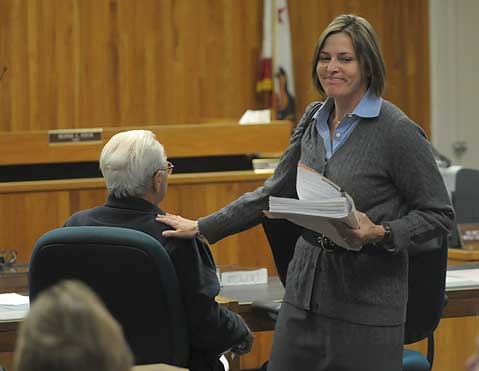
Deputy District Attorney Mary Barron was also visibly tearful after the hearing. “It’s a very difficult case factually,” she said. “No prosecutor wants to prosecute this case.” Barron and Balash agreed before the hearing that probation and time served, plus community service, was the appropriate sentence.
But after his arrest last September, Barron contended Wheeler was a threat to himself, his wife, and the community and ordered a no-bail hold on him. Eskin disagreed and, after Wheeler was in jail seven days, granted him bail on the condition he live with his daughter and son-in-law, and receive grief counseling. If he visited Beckie in her nursing home, the visit had to be supervised.
“That stance was to protect [Beckie],” Barron said about her no-bail request. “To ensure the safety of the victim is the number one responsibility of the county.”
But she said a lot more is known now; Wheeler received a psychological exam, for example, plus grief counseling and, finally, Beckie Wheeler is gone. Karen Wheeler said Beckie’s death elicited feelings of relief and devastation in Wheeler.
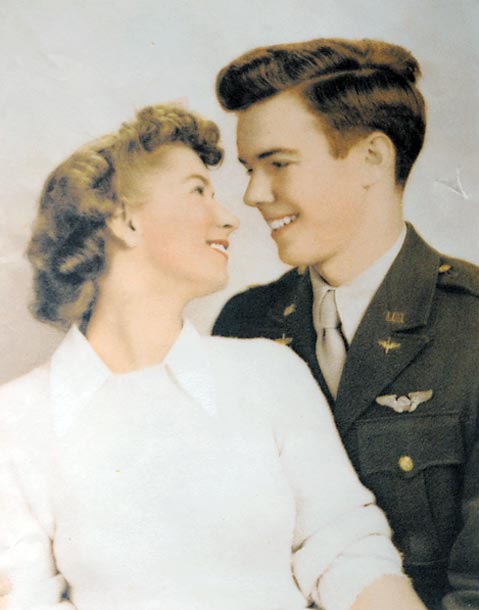
After the hearing, Wheeler, who never lost his sense of humor through the ordeal, even in the midst of overwhelming grief, said he felt great. He will be allowed to move home to his Third Street house one block down from his daughter’s, a prospect that appeared to buoy his spirits.
“I’m going to be on my own for a while,” he said. “I’ll play bridge, ride my bike every day.
Five million, two hundred thousand Americans currently have Alzheimer’s, disease, most of them over 65 and all but a small percentage cared for at home by family. The disease causes parts of the brain to atrophy and die, taking with it the person’s ability to remember and make decisions, and, ultimately, essential bodily functions fail.
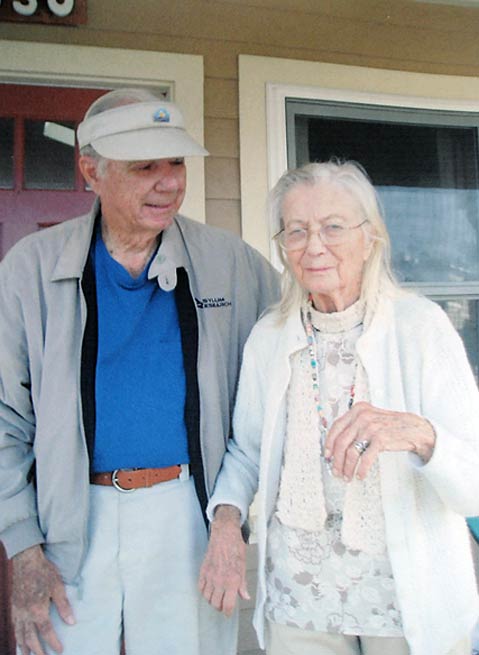
Eskin prefaced the sentencing by saying, “Am I to look at a life of a wonderful man, a man who has contributed to the community, and conclude that further punishment should be imposed? You have been punished and you will continue to be punished.”
As the hearing was winding up, the judge added, with evident tears: “I wish everyone who has an interest in this case could see this incredible picture of you [two] in 1944 and then the one in 2008. I don’t know which one is more beautiful.”



